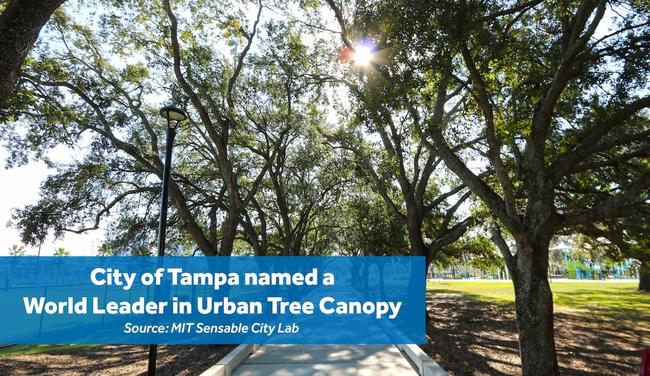Trees are a valuable resource to the City of Tampa – they clean the air, absorb stormwater, reduce temperatures, and improve your property value – because of this, they are protected by local laws under section 27-284 of the city code. Before doing any work on or around trees please use the below links to ensure you are in compliance with local regulations.
Why do we protect trees?
Trees are a vital part of the ecosystem and provide needed shade and other environmental benefits, such as cleaning the air, conserving soil and water, moderating temperatures, and bringing nature into our daily lives. The City of Tampa's regulations are designed to protect and enhance the trees that make up the Urban Forest.

